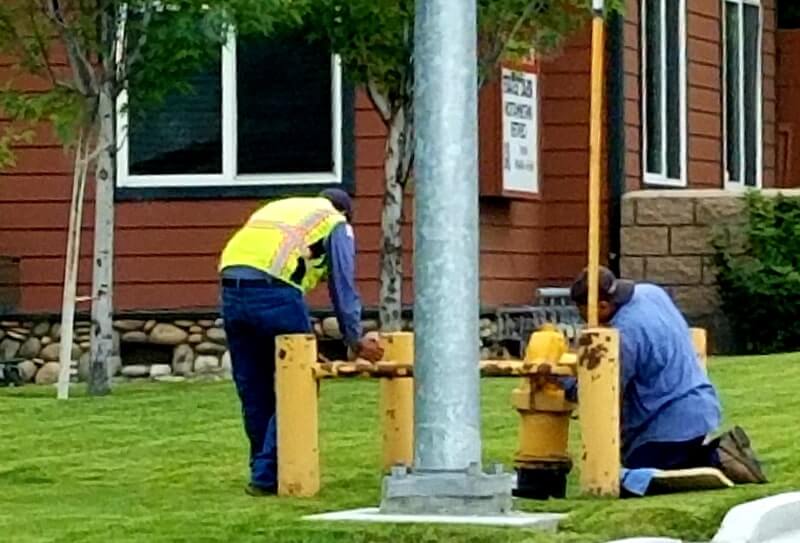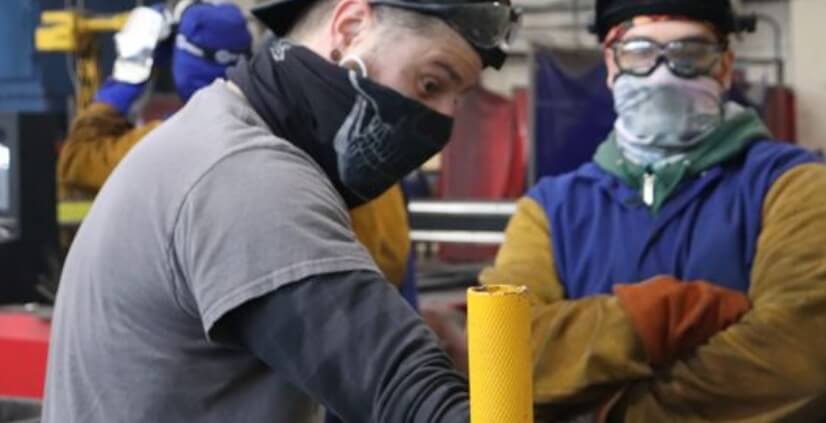According to plumbing codes, plumbers are responsible for assembling, installing, or repairing pipes, fittings, fixtures of water, or drainage. Experienced plumbers or plumbers who got training from trade schools even can supervise or train apprentices and newbies. To cut yourself out of the crowd, one needs to learn at a trade school. A plumber installs and maintains pipes and fittings inside a house, office, or even the President’s residence.
To do their pipe-fitting work, a plumber needs to attain plumbing training through a plumbing program and receive his plumbing certification. Through their expert instructors and practical courses, these plumbing certifications and plumbing programs install the necessary skills in the person to become a certified plumber in the market.
The salary of a plumbing technician could vary according to years of experience. For example, a person who has been plumbing for less than one year has an hourly wage of $20.83, and a person with more than ten years of experience could be as high as $30.21!!
This amount is fantastic pay for living a good life in the United States. You will be satisfied with your job and its income.
To perform his duties properly, a plumber needs to have some skills learned from a plumbing course and then get into the industry. These mandatory skills are :

Not just plumbing, every trade business requires certified individuals who have received formal training through training programs offered by a certified trade school. For getting into the plumbing industry, the initial step for the person is to complete their high school and get their plumbing certification done through a plumbing program.
These plumbing programs engrave the best skills to meet the industry demands for qualified Steam, Sprinkler & Pipe Fitting. In addition, these programs ensure a level of competency commensurate with any standards in the industry.
If you are standing among many people applying for a plumbing job, then having a plumbing certificate gives you an edge over them and makes the employer sure of the skills that he/she wants a plumber to have.
These plumbing certificates prove that the person has received formal training and has the required skills to become a master plumber and start his plumbing business.
Philadelphia Technician Training Institute offers a 26-week long plumbing training program under the guidance of industry-experienced teachers at the pipefitter training institute. In just six months, you can become a plumber, pipefitter, or pipe fabricator. And not just this, you get:

Students who complete their training program will be eligible to perform general and boiler pipe fitting jobs. They would choose a career as a Plumber, Pipe Fitter, Steam Fitter, Pipe Fabricator, or Pipe Welder.
Students will also be able to apply for an Apprentice Plumber’s license.
Other course benefits are:
Tuition and fees: $18,200)
Books and supplies: $0!
A plumbers job is considered to be the second-best construction job. Becoming a plumber is a long process that includes practice and theoretical training, and study. The investment you make in your plumbing course pays off.
These courses give you the tag of a certified plumber. Their master and experienced educators train you, teach you and provide you with the best possible hands-on training that makes you the best version of yourself.
The best plumbing schools’ training courses are cost-effective. They have adapted themselves to the needs and requirements of students from various backgrounds and make them learn in the best practical and theoretical way. Therefore, you should join such a certified plumbing school and receive plumbing certification in a concise time without spending heavily and exuberantly on starting your plumbing business.
Read More:
Discover pipefitting possibilities at PTTI.Discover Program

Discover Endless Possibilities with pipefitting program at PTTI.
